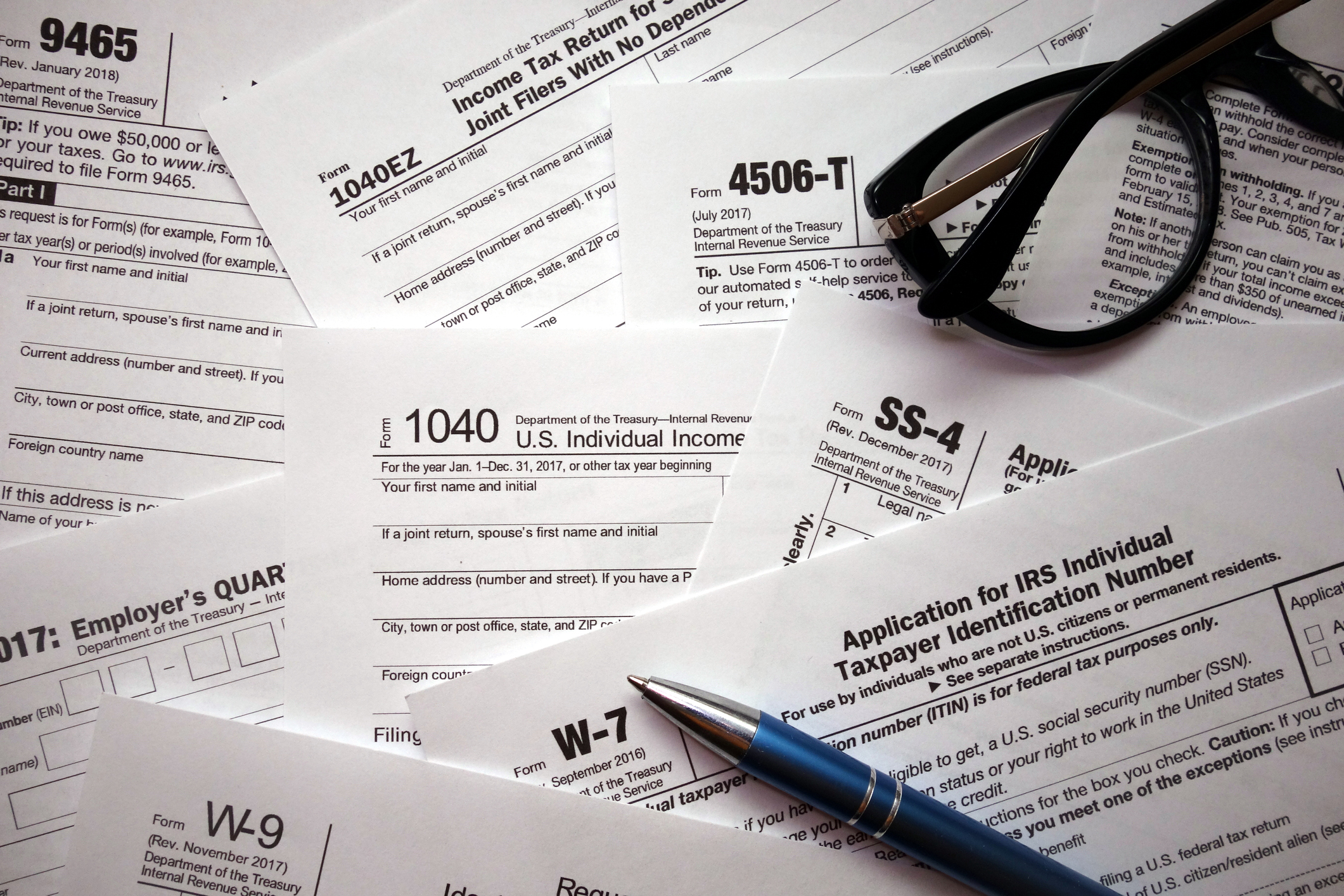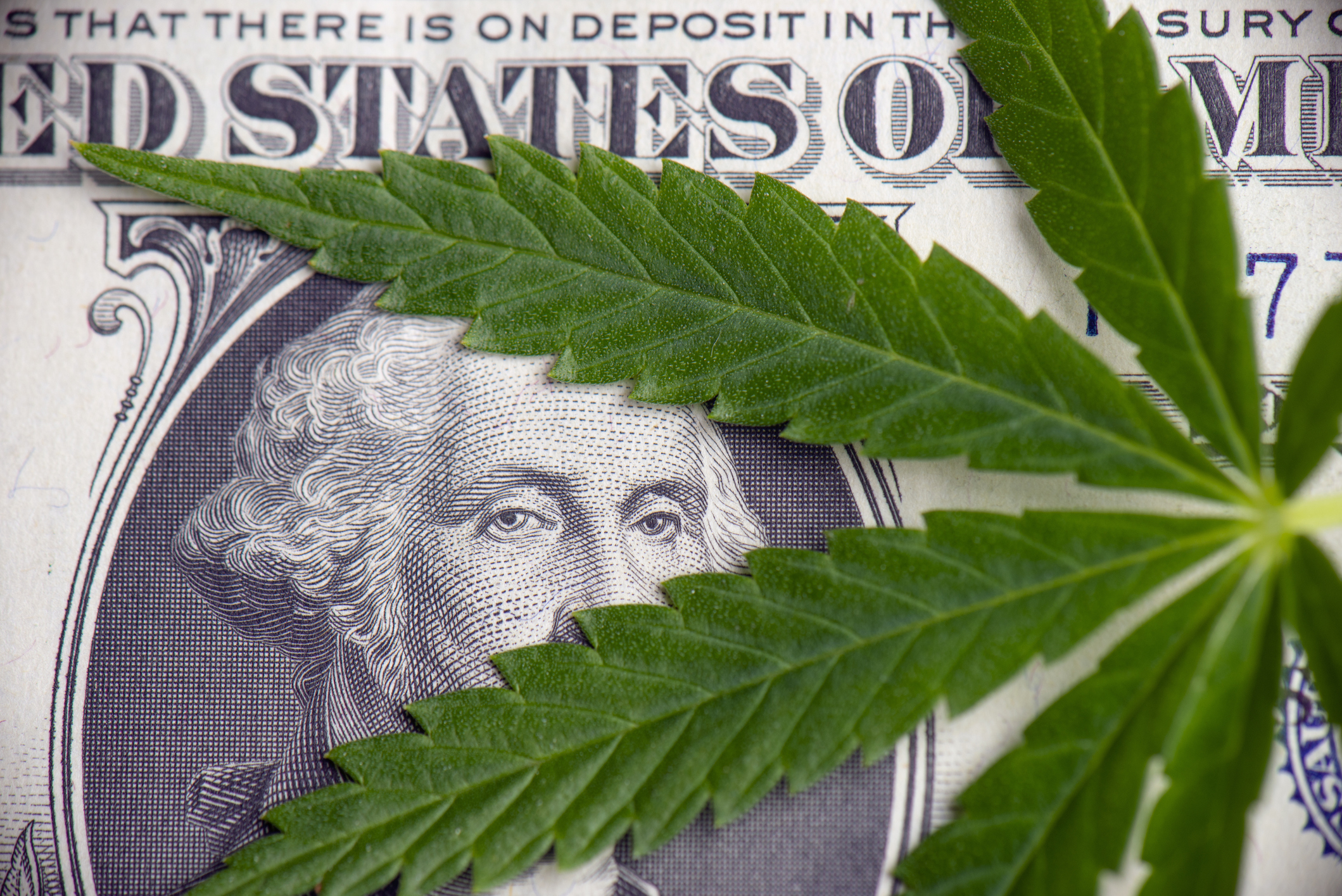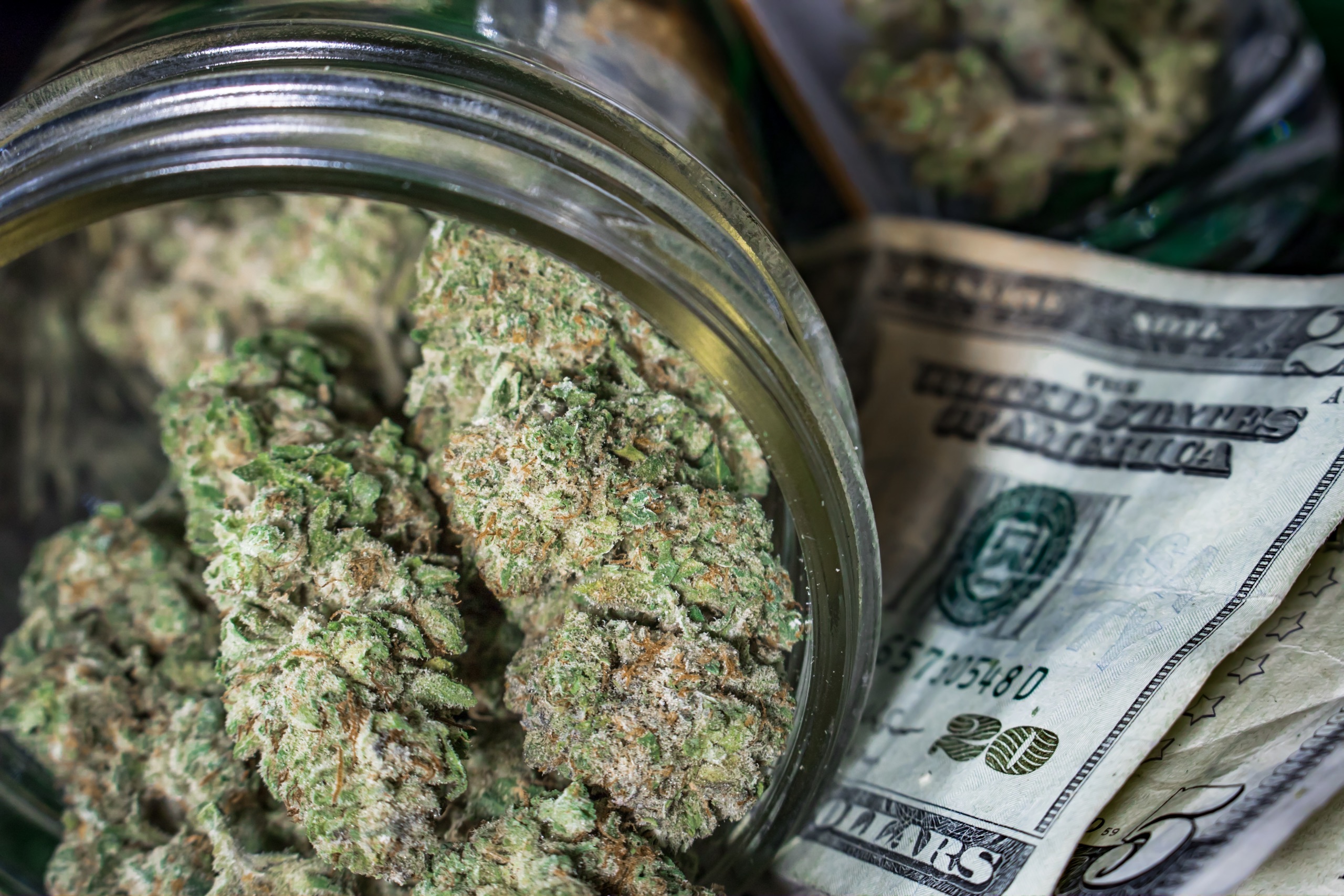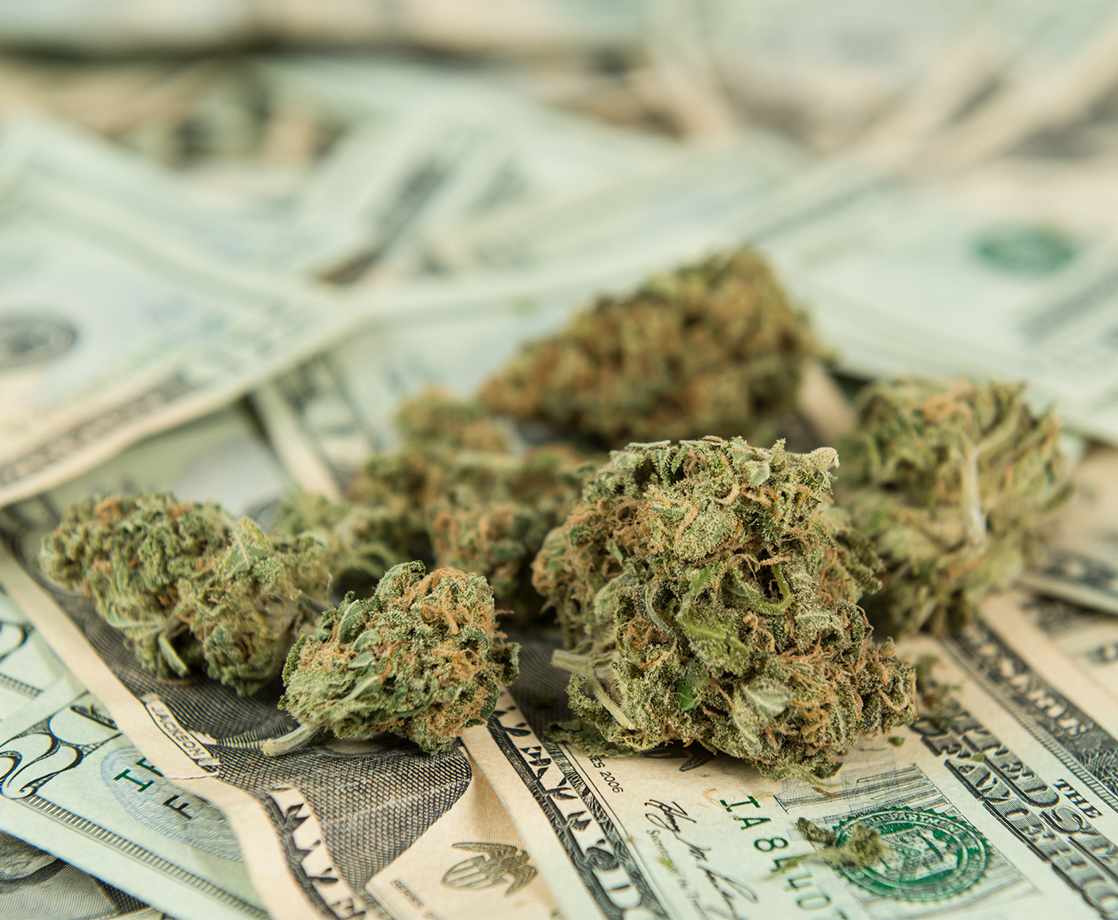On April 15, millions of Americans will rush the post offices to file their taxes at the very last minute. It’s a bit of a time-honored tradition of horror in the US, but in the cannabis industry, taxes pose additional complications — mind-numbingly obtuse ones — that other businesses never have to worry about.
Why are taxes such a headache for ganjapreneurs? Under the IRS’s rules, code 280E explicitly bans tax deductions for income made by trafficking Schedule I and Schedule II drugs defined by the federal Controlled Substances Act. And since the feds classify “marijuana” as a Schedule I substance, a category reserved only for deadly and addictive drugs with “no accepted medical use,” that means state-legal cannabis is still considered criminal, and the federally-run IRS will have nothing to do with it.
Fortunately, things may soon change. On Wednesday, the House Subcommittee of Consumer Protection and Financial Institutions held a hearing for the Secure and Fair Enforcement of Banking Act, or SAFE Act, a bill that would finally allow federally-insured banks and creditors to open accounts for state-licensed cannabis companies.
At the moment, most banks won’t handle digital deposits, transfers, or loans for cannabis operations. Credit card companies currently ban transactions involving cannabis, as well. This restricts the $8-billion industry to cash only, and that’s a lot of dinero to stuff under the couch.
With tax day fast approaching, how does a federally outlawed industry handle its dealings with the IRS? To better understand the myriad complications plaguing the intersection of THC and Uncle Sam’s currency collectors, we talked to some experts and broke down the issues into subtopics.

Can Patients or Recreational Consumers Make Deductions for Pot Purchases?
Nope. Regardless if you bought cannabis for medical purposes or just to get lit, cannabis products are not eligible for any deductions. At least for now.
The general rule is, if you touch the plant, you can’t make a deduction as a business, a consumer, or otherwise. Even if you’re a registered medical patient with a shiny medical marijuana card, cannabis can’t be thrown in with other medical expenses.
What Is 280E?
Code 280E states that no entity which sells, manufactures, or distributes marijuana can declare itemized deductions or credits. Normally, the IRS taxes businesses according to that business’s income for the year minus costs of goods sold.
Here’s an example. Let’s say a pot shop makes $100,000 in one year. (A low number for most weed stores, but let’s keep the zeroes down for simplicity’s sake.) However, it costs money to make money. Assume the shop spent $60,000 on overhead: paying its employees, buying bottles and bags for the cannabis, licensing fees, advertising costs, etc. Any other business could deduct that $60,000 from its $100,000 total income, so the IRS would only tax it for $40,000 instead of the full $100,000.
That’s not how it works in weed right now. Instead, the shop would need to pay taxes on the full $100,000, essentially being taxed on lost income. No other industry in the US suffers from this handicap.
Why Does 280E Exist?
In 1975, the IRS tried to nail a man named Jeffrey Edmonson for claiming over $100,000 in tax deductions related to his illegal trade of methamphetamine, cocaine, and weed. In 1981, Edmonson successfully sued the IRS for the right to make those deductions. A year later, the US Senate put the kibosh on the practice by passing S.2212, a bill to amend the tax code against drug trafficking.
Unlike Edmonson, the regulated cannabis industry operates in the open, and licensed cannabis companies file their taxes like any other business. Furthermore, state laws permit these businesses to legally operate, so they ought to be allowed to make tax deductions, right? According to the federal government, no, they cannot.
But What About States’ Rights?
Some states, such as Colorado and Oregon, do allow some deductions for licensed cannabis businesses. But these deductions only apply to state taxes, not federal. Most states, unfortunately, follow the federal guidelines and don’t permit deductions.

Do Cannabis Stocks Fall Under 280E?
According to Sandy Suchoff, a CPA and founder of the cannabis tax accounting firm The Canna CPAs, cannabis investments on stock exchanges are exempt from 280E.
With stocks, investors can report losses as a loss of income — a deduction. “Because it’s not a cannabis-touching entity, it’s not a licensed trafficking entity. It’s typically on an OTC market,” she told MERRY JANE during a phone interview. “It has the same tax treatment [as any other stock market investment].”
Can Employees in the Weed Biz Make Deductions?
That depends.
Budtenders, growers, packagers, extractors, delivery drivers, trimmers, and the like typically cannot make any deductions related to their cannabis-derived income because they usually work as employees of a licensed cannabis business.
As for freelancers in the weed business, some can make deductions.
“It would be very difficult to classify them as independent,” Suchoff said about employees working for licensed cannabis operations. “Regardless, if they’re trafficking controlled substances, they are selling. All selling expenses and deductions are disallowed. Even if they were [independently contracted], a budtender would not be able to take any deductions. Independent trimmers, growers, transporters, and budtenders would all be subject to 280E.”
Remember that the ability to make deductions depends on whether someone touches the plant. Those who work in ancillary industries, such as marketing, law, or grow supplies can make deductions.
“But these are very gray areas,” she cautioned. “One could make a compelling argument either way, depending on how someone defines trafficking.”

Is Hemp Subject to 280E?
Again, that depends. The 2018 federal Farm Bill, signed late last year by President Trump, essentially removed hemp from the Controlled Substances Act. Hemp is any cannabis that produces less than 0.3 percent THC — the compound that gets folks lifted — by dry weight.
The devil resides in the details, though. The Farm Bill clearly states that certain parts of the hemp plant are now totally legal, specifically the stems, stalks, and seeds, which contain negligible amounts of THC. You’re off the hook and can claim deductions this tax season if your hemp production operates purely for “industrial” and “research” purposes, such as converting hemp fibers into textiles (industrial) or designing seeds to maximize yield (research).
The situation gets sticky when hemp flowers or buds come in, since hemp buds often contain CBD, a non-intoxicating compound found in cannabis that possesses medical properties.
Is CBD Subject to 280E?
Now things get really complex.
According to the DEA, any FDA-approved CBD product containing less than 0.1 percent THC is now considered Schedule V, alongside drugs like codeine. The key part of the DEA’s definition is “FDA-approved,” and so far only one CBD product qualifies: Epidiolex, an anti-seizure drug produced by GW Pharmaceuticals/Greenwich Biosciences.
What about other non-FDA-approved CBD tinctures, powders, oils, pills, and infused edibles? The DEA claims these products remain Schedule I, since they’re derived from cannabis and will contain trace amounts of THC.
Suchoff said CBD’s tax status lingers in a legal gray area for these reasons. The Farm Bill absolutely allows deductions for industrial and research operations dealing with hemp, but commercial operations producing CBD products may want to approach their taxes conservatively until regulators hammer out the issue.
What About US Senate Bill 420?
Yes, there’s a real Senate bill titled S.420. Sen. Ron Wyden (D-OR) introduced it this month so state-legal cannabis businesses could finally access banking and file their taxes like any other business.
Jim Parco teaches economics at Colorado College, a private university based in Colorado Springs, Colorado. He also owns and manages Mesa Organics, a recreational cannabis store in Pueblo, Colorado.
Parco told MERRY JANE over the phone that exempting licensed cannabis businesses from 280E would be like “taking the rope off your arms and legs.”
“280E simply restricts us,” he added. “We don’t want 280E to go away. It’s not a bad thing, it’s just bad that it’s been misapplied to the cannabis industry in the way it has.”
He noted in addition to the “effective” 100 percent tax rate, dispensary owners must also devote untold amounts of time, energy, and money to combing through every expenditure so they remain 280E compliant.That means paying attorneys, tax accountants, and compliance consultants, on top of the financial hemorrhaging caused by extraneous tax payments.
The only downside to releasing licensed cannabis businesses from 280E? “The government will collect less on taxes from the cannabis industry… if that can be seen as a bad thing,” he said.

Dotting I’s, Crossing T’s, Rolling J’s
Basically, making it as a cannabis entrepreneur right now remains an uphill battle. On ice. While wearing inline skates.
Although some cannabis companies may hit billion-dollar valuations soon, most struggle just to break even due to compliance costs, licensing fees, high taxation, and saturated markets.
In short, every cannabis business should consult attorneys and CPAs regarding their tax filings, as the nuances can easily get tangled under the mountain of tax rules.
Cannabis businesses may rely on one exception to 280E, though, according to Suchoff. This one comes from a 2007 tax court case in California, CHAMP v. Commissioner. The court ruled that licensed cannabis businesses could adjust for costs of goods sold, so long as those costs involved portions of the business that didn’t directly handle weed, like insurance fees.
Unfortunately, as it goes with cannabis, nothing is so cut and dry. In 2012, a tax court ruled in Olive v. Commissioner that a social consumption lounge, The Vapor Room, could not make the same deductions afforded in CHAMP v. Commissioner, even though the lounge offered non-green services like movie viewings, yoga, and pizza. Ultimately, the Vapor Room couldn’t prove these services existed independently of its consumption lounge, nor did it have separate licenses distinguishing the cannabis portion from the other services.
Regardless, both CHAMP v. Commissioner and Olive v. Commissioner are court rulings. The verdicts stand as interpretations of the law, not written laws themselves. Without clear guidance from the IRS, the cannabis industry will continue to flail under the tax code.
The cannabis industry, noted Suchoff, “is at a higher risk of audit” compared to other industries. She suggested heavy documentation for every single expenditure. Keep every receipt. Back up every piece of paperwork, then back up the back-ups.
Follow Randy Robinson on Twitter











